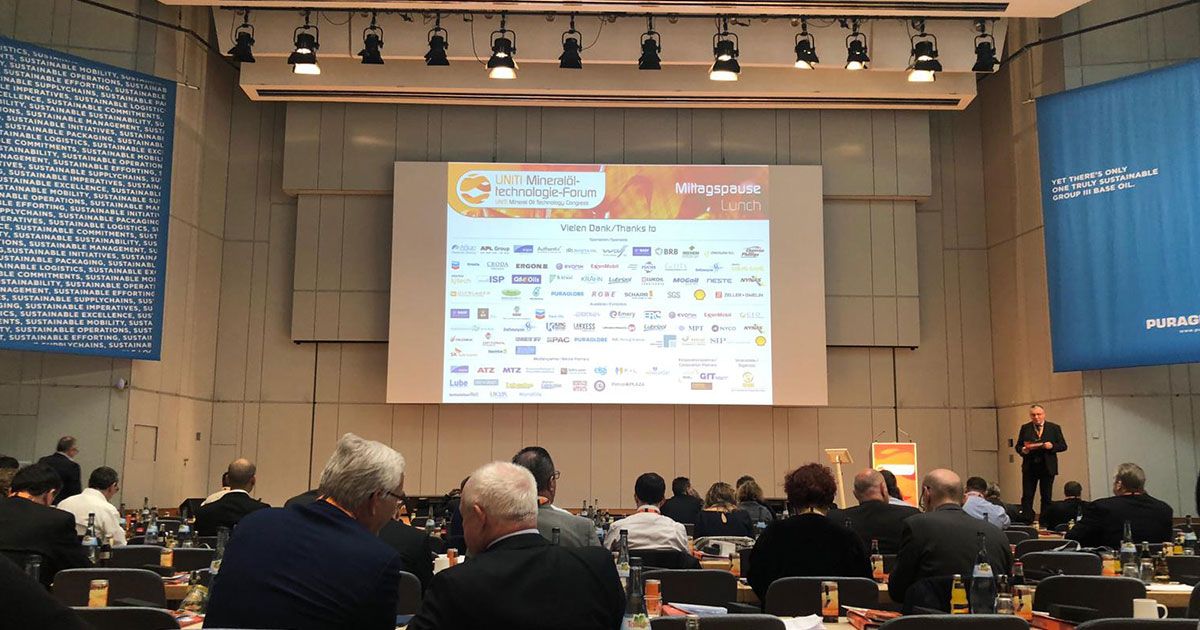
Improving the fuel cycle by driving innovation
Director James Moorhouse discusses his thoughts following this year’s UNITI congress: Having arrived back from this year’s UNITI Mineral Oil Technology Congress, one of the key messages to come out of the conference was how we need to work together to improve the efficiency and sustainability of the entire fuel cycle.
Whilst new technology will play a vital role in this, it’s the people of the oil industry who will drive real change. Changes in mindsets, encouraging innovation and presenting issues as challenges to be solved by employees (both new and old) will all contribute in achieving sustainability goals. It also highlights a powerful talent attraction opportunity: the chance to create new technology that will ultimately change the world for the better.
Highlighting waste in the fuel cycle
To recap, the fuel cycle describes how we produce, consume and dispose of fuel. It applies to everything from food and drink to clothing and, of course, oil.
One remark that stuck with me from the UNITI conference is that we don’t have an energy problem, we have a waste problem. In fact, the sun creates enough energy in one hour to provide us with our energy demand for an entire year…
We currently have a very linear fuel cycle; once resources are used, they are disposed of and potential by-products are wasted. The aim is to move towards a circular approach, where resources are consumed and as much waste product as possible is recycled and re-introduced into production.
To illustrate the point, here are some examples of wastage throughout the fuel to vehicle lifecycle.
1. Fuel production
The wastage in the fuel cycle begins during production. As we use up natural resources, more and more power and energy is needed to extract deeper reserves.
The production of oil generates a significant amount of waste fluids, with more than 18 million barrels produced every year in the United States alone.
Similarly, once rigs and equipment are decommissioned, very little material is recycled as concerns over safety and the demand for ‘new’ prevails.
2. Vehicle Production
Fuel demand is generated, among other things, by vehicle production. As our population and societies grow, the demand for vehicles (whether that’s cars or public transport) grows alongside it.
Vehicle production generates a significant amount of recyclable and non-recyclable waste. From lithium batteries to brake fluid and waste oil, the volume of wastage presents large opportunity.
Waste management in vehicle production is also highly regulated. It’s estimated that waste management makes up 10 per cent of the automotive industry. Of that 10 per cent, 82 per cent deal in recyclable waste management and turning by-products into useful products.
This is perhaps an insight into how a circular fuel economy will be realised, as regulation and legislation force changes in production.
3. Vehicle usage
As soon as we put petrol in our cars and switch on the engines, combustion happens and CO2 is released into the atmosphere.
Once that happens, we have no way of reclaiming fossil fuels and have to wait for biomass to break down into precious natural resources. Which won’t happen for at least a million years.
4. Disposing of vehicles
Once a car is no longer safe to drive or is out of action, the emphasis is on the consumer to initiate methods of recycling. If consumers don’t have an initiative to do so, it’s likely that their old car won’t be recycled.
Cars are highly recyclable though, with 95% of parts capable of being put to good use.
There’s also a prevalent cultural problem. Many Americans drive new cars for an average of six years, despite cars roughly having a 13-year lifespan. While it’s impossible to prevent people from buying new cars, work can go into creating recyclable parts.
This is just one example as to how one function of fuel generates waste. When this is applied to all of its uses, the problem immediately becomes apparent.
Taking a people-first approach
It’s undeniable that producing new technology will play a big role in reducing waste. But before we can progress to that point, employers need to recognise the need for innovative thinking and take a people-first approach to solving the waste problems.
Innovation drives change, so fostering a culture and enforcing a hiring policy that reflects this is key. Encouraging fresh thinking and promoting an open and positive atmosphere will make employees comfortable enough to contribute new ideas
Diversity also plays a key role in innovation. Employing people from different backgrounds, with different experience and different points of view will help you look at problems with a fresh perspective. This is especially important when faced with issues that stem from years of being stuck in a ‘we’ve always done it this way’ cycle.
As we’ve expressed in previous articles (and proven in our own recent global young professionals survey) studies have proven that employees no longer prioritise salary above anything else. Instead, they look for opportunity, development, and the chance to have a real impact on society and important issues. When these factors are coupled with an openness and encouragement of innovation, it makes the oil industry equally as appealing as the technology industry.
What are other companies doing?
Many companies in the oil industry are already taking a practical approach to reducing wastage.
Described as the world’s leading biofuel producer in the circular economy, Neste is channeling research into substituting crude oil for waste plastics in the production of oil products. This is a good example of encouraging innovation, as Neste is actively challenging employees to find the answer to a difficult problem.
Repsol has created a sustainability model that seeks to close the loop and analyses the impact that products and services have on the environment. This helps to improve efficiency and get ahead of potential legislative changes, instead of rushing to change when forced to.
Just like many other companies, Total are aiming to design waste products out of the process. This fundamentally requires a different way of thinking and challenges ingrained points of view and routine. For waste that’s unavoidable, Total supports other recycling and recovery efforts to ensure that considerations are taken at every step life cycle.
Solving wastage problems will not only slow down climate change, but it will prove the adaptability and social conscience of the oil and gas industry.
Thanks for reading James’ post. Find more oil & gas industry insights and key interviews here, or join our mailing list to get our monthly round up straight to your inbox.
ABN Resource are an experienced fuel recruitment agency. Talk to us about your hiring needs in the fuel market today.


